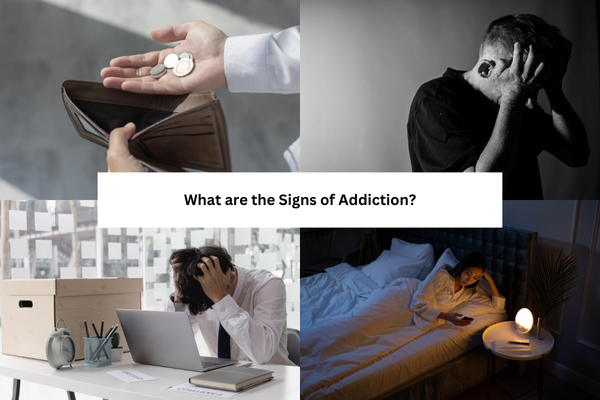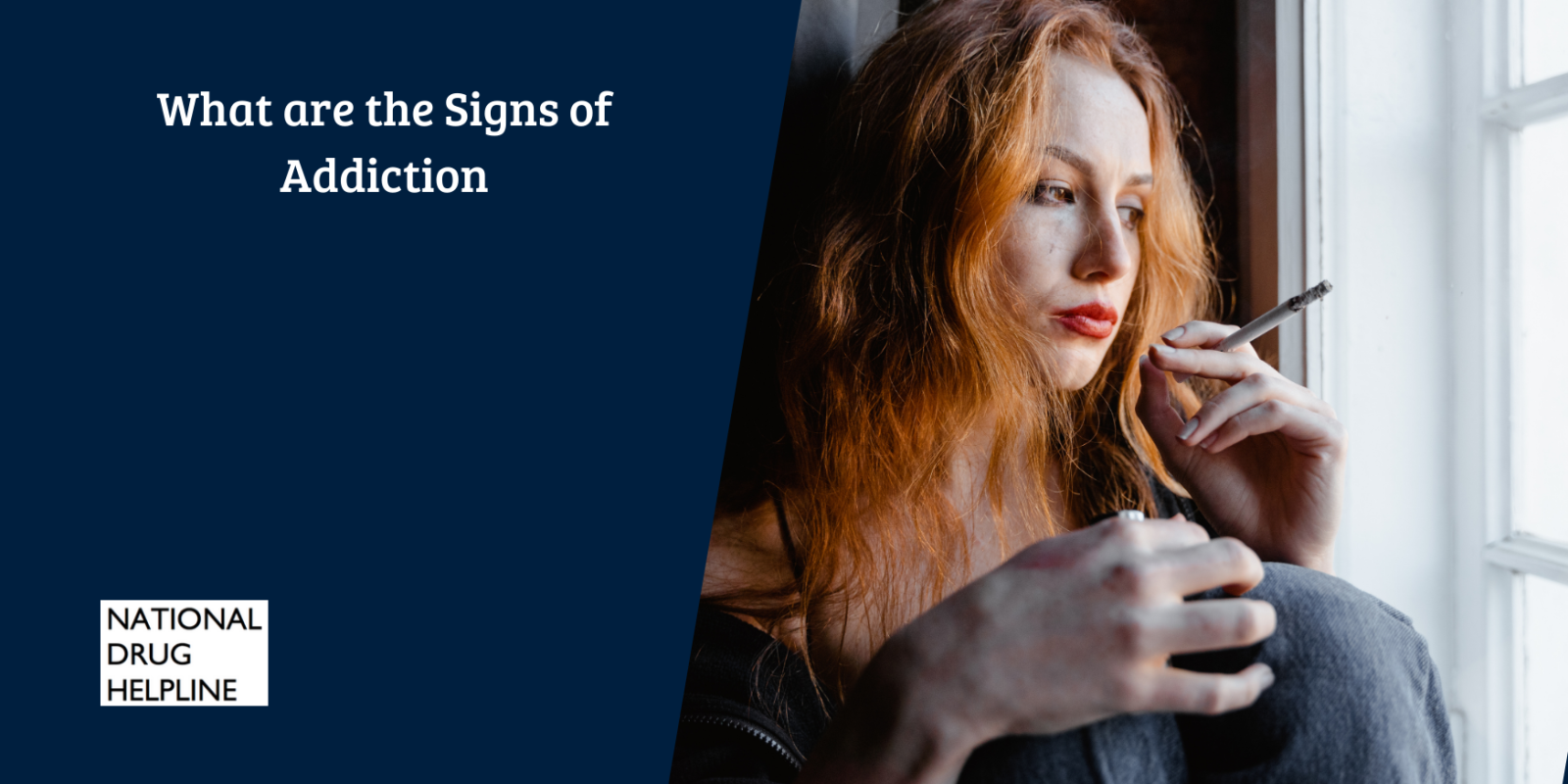Addiction is a serious, life-threatening condition that is often misunderstood. It is not merely a failure of willpower, but it is a pathological condition that alters the reward system of the brain and motivation that requires comprehensive treatment and support. [1]
To treat addiction in time and prevent any long-term harm, it is essential to first recognize the early signs of addiction. Whether you are trying to help yourself or your loved one, it is essential to properly understand what the subtle signs of addiction are to be able to recognize them early on.
Understanding Addiction
Addiction can present in many forms, including but not limited to dependence on substances like alcohol, prescription medications, or illicit drugs. Some people may even suffer from behavioral addictions such as gambling. It is also highly likely that a single individual may have more than one addiction.[2]
Regardless of the type, a person with addiction is unable to stop the behavior despite being aware of its harmful consequences. Addiction can affect every aspect of life, including physical health, mental well-being, and social life.
Common Signs of Addiction

By recognizing addiction early, you can prevent further damage to yourself by opening the door to addiction support and treatment. Some of the most common warning signs[3] are:
1. Loss of Control
- Being unable to stop or limit usage of harmful habits despite wanting to stop may be a key warning sign that you are suffering from an addiction.
- Failure in repeated attempts to cut back suggests your attempts are not working, and you may need professional help.
- A significant amount of time and energy is spent on ways to obtain or use the substance, hampering your social and professional life.
2. Neglecting Responsibilities
- Performance at work or school deteriorates in comparison to levels before the habit began, as addiction takes up a major chunk of your day.
- You may find yourself neglecting obligations to family and friends as your priorities have now shifted.
- A serious turning point for most people is when they begin facing financial troubles due to increased expenditure on addictive habits. Some may even go to extreme or illegal measures to gain finances to sustain their addiction.
3. Changes in Behavior and Mood
- Increasing periods are spent in isolation away from society. This may be out of guilt or a lack of interest in communicating with other people.
- Mood swings may occur suddenly and frequently along with increased irritability.
- Activities that were previously enjoyable may no longer be of interest, incite any excitement or pleasure.
4. Physical Health Symptoms
- Sleep patterns may change. You may find yourself unable to sleep at night or experience increased daytime sleepiness.
- Dramatic loss or gain in body weight, as people with addiction either have a high appetite or no appetite at all.
- Frequent injuries or illnesses that cannot be explained. These injuries may have occurred during an inebriated state that the individual cannot recall.
5. Tolerance and Withdrawal
- Larger amounts or more frequent usage may be required to achieve the same effect. This effect only worsens with time.
- Withdrawal symptoms occur when not using the substance for prolonged periods, such as nausea, sweating, shaking, or anxiety.
When to Seek Help
If you or your loved one has one or more of the signs listed above, it is time you consider reaching out for expert help. Treatment by professionals trained in addiction recovery are available in many forms, including:
- Detoxification Programs
- Inpatient Rehabilitation
- Outpatient Addiction Therapy
- Medication-Assisted Treatment (MAT)
Support Services
- Addiction Hotline
- Family Counseling
- Peer Support Groups
Tips for Preventing Addiction
If you do not have any of the signs above but are worried you may be at risk of having an addiction, the first step to preventing addiction is to be aware of the warning signs. Here are some additional addiction prevention tips that can help prevent addiction:
- Educate yourself, your family, and your friends about addiction risks.
- Avoid taking addictive prescription drugs for mild aches or pains, as this could eventually lead to addiction.
- Build strong social connections and coping skills. Learn to share your problems by communication instead of seeking harmful methods of coping.
- Encourage open communication with your family and friends about mental health and the hazards of addiction.
Find Help Today
The first step in reclaiming control over your life or helping a loved one do the same is recognizing the signs of addiction. It is best not to wait, hoping things get better with time or until things worsen.
Countless drug addiction resources are easily accessible, but it can be a difficult task to navigate through these and find the one that works for you. Here are some organizations that can be a starting point for you on your road to recovery:
- National Drug Helpline: 1-844-289-0879 provides free and confidential referrals.
- HelpGuide.org provides practical advice on recognizing, preventing, and treating addiction.
- DEA Recovery Resources has tools for people dealing with all types of addiction.
You can also find more addiction treatment options through programs designed for recovery from addictions or learn more about addiction counseling services.
Last updated: May 12, 2025
References
| ↑1 | Koob, George F., and Michel Le Moal. “Addiction and the brain antireward system.” Annu. Rev. Psychol. 59.1 (2008): 29-53. |
|---|---|
| ↑2 | Carroll, Jerome FX, Thomas E. Malloy, and Fernm Kenrick. “Alcohol abuse by drug-dependent persons: A literature review and evaluation.” The American Journal of Drug and Alcohol Abuse 4.3 (1977): 293-315. |
| ↑3 | Korpa, Terpsichori N. “Clinical signs and symptoms of addictive behaviors.” International Journal of Child and Adolescent Health 6.4 (2013): 369. |

